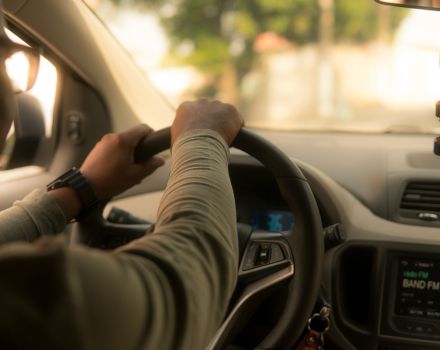17 March 2022
Event Report
Press Release
The Future of the Ride-Hailing Sector in Light of the Proposed Platform Work Directive
‘We are determined to continue improving the working conditions of drivers, and are convinced that enhancing the dialogue between platforms and drivers is an important element of doing so. Yet, the proposal will lead to the reclassification of majority of drivers in Europe as employees, often against their wish, as drivers want to keep the flexibility and advantages of independent contractors' - said Aurelien Pozzana, Move EU Chairperson, at the workshop on the Future of the Ride-Hailing Sector.
On 16 March, Move EU organised an online workshop on the Future of the Ride-Hailing Sector in Light of the Proposed Platform Work Directive. Participants from EU institutions, Member States Governments, industry, and media gathered online to hear experts’ views on the consequences of the proposed Directive for the sector. The slides are available here.
MEP Radan Kanev (EPP, BG) underlined the sensitivity of the proposal as platform work has enabled the reintroduction into the labor force for hundreds of thousands individuals, a property particularly relevant in light of the displacement of Ukrainian nationals as a result of the Russian invasion. Platforms can create flexible earning opportunities with low barriers to entry that help individuals bounce back and integrate into the society and economy.
Furthermore, he highlighted two layers of concern: Firstly, there is a need to legislate in accordance with the EU Treaties and called for the proposal to be assessed by the European Parliament’s legal service to clarify the legal basis selected by the European Commission to ensure it is within the scope of EU competence. Secondly, he noted that while there are positive elements in the proposal, the rebuttable presumption would impact drivers’ negatively as their income would decrease in absence of the ability to work for multiple applications.
Aurelien Pozzana (Move EU Chairperson) noted that ride-hailing platforms support the objective of the Commission’s proposal, but emphasized that the approach taken will not result in improving working conditions since it only focuses on the employment status. On the contrary, the proposal would put an end to drivers’ flexibility and freedom while reducing their earning potential deriving from working simultaneously on several ride-hailing platforms. The proposed criteria connected with the rebuttable presumption of employment would reclassify all drivers throughout Europe as employees, which is against their will. Lastly, Pozzana called for giving drivers the freedom to choose remaining self-employed, defining their own schedule and being able to accept or decline orders.
Jorge Padilla (Compass Lexecon - economic consulting firm) provided an economic assessment of the proposal, and stated the change in employment status would lead to at least 148.000 drivers across the EU losing access to work via platforms, a consequence which is counterintuitive taking into account the initial objective of the Commission.
Benoit Le Bret (GIDE - law firm) shared that the legal basis selected by the Commission does not match the content of the proposal and that the correct legal basis would require unanimity among the Member States in the European Council. He added that the Directive should protect platform workers from losing the self-employed status they have chosen. He also stated that EU institutions makers should consider an explicit opt-out for Member States that wish to keep their national models defining platform workers’ rights regarding self-employment presumption. Looking ahead, Le Bret stated that the debate will likely be prolonged in order to adopt more balanced provisions.
Dalius Rudokas (Drivers & Couriers Association Lithuania) emphasised that drivers very much value their flexibility and freedom to decide on their own schedule and to work for different platforms simultaneously, and pick offers with the best revenues. Rudokas underlined that the proposal entails elements that drivers very much welcome, but also stressed that the reclassification of drivers as employees is opposed by a clear majority of drivers despite said positive elements. Furthermore, Rudokas welcomed increased communication between drivers and platforms to improve conditions.
About us
Move EU brings together the leading actors in the field of ride-hailing. Speaking with one voice, our members aim to foster sustainable deployment of on-demand mobility and new mobility services in the European Union. Move EU members connect passengers with licenced on-demand taxi and private hire vehicle (PHV) drivers, for the purpose of carrying passengers in return for payment.





